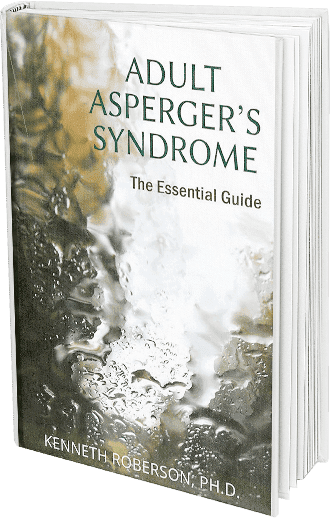
Diagnosing Autism Spectrum Disorder in adults involves a lengthy assessment, typically in the range of three hours. What if there were a quicker way to get a reliable and accurate picture of whether you have this condition?
Actually, there is. Two screening questionnaires provide a means of assessing whether someone likely meets the criteria for Autism Spectrum Disorder (now considered part of Autism Spectrum Disorder) without having to go through the full assessment process. Here are some facts about the screening process and the pros and cons of using these questionnaires to determine a diagnosis.
First, it’s important to understand that Autism is harder to diagnose than classical autism. To begin with, there are no established diagnostic tests that conclusively determine whether someone has Autism Spectrum Disorder. A diagnosis depends upon direct observation of whether a person has sufficient challenges in the areas of social interaction and communication, sensory issues and restricted interests or repetitive behaviors. Many high functioning adults, however, become very resourceful in developing strategies to mask and compensate for their challenges. A diagnosis based on observation, then, becomes difficult and the use of other tools to assess a person is advantageous.
Screening tests provide information that can’t be duplicated in the actual face-to-face assessment itself and, in some cases, make the assessment unnecessary. Often, the results point to aspects of Autism Spectrum Disorder that would not be noticed in the clinical observations that make up a formal assessment. If the results of the screening tests indicate no tendency at all towards Autismtraits or even Autism tendencies slightly above the normal population average, it would suggest no need to pursue a full evaluation. Screening tests, then, can sort out who needs a full evaluation as well as provide information that the evaluation might not detect.
Autism Spectrum Quotient
One of two reliable screening questionnaires, The Autism Spectrum Quotient (AQ) is a 50 item self-administered questionnaire for adults, that identifies the degree to which any individual might have features of the core characteristics of Autism Spectrum Disorder. The AQ assesses five different areas: social skills, attention to detail, communication, attention switching, and imagination. It is a valid and reliable indicator of the potential of Autism in adults. A score of 32-50 indicates a strong likelihood of Autism Spectrum Disorder, 26-31 indicate a borderline indication of Autism Spectrum Disorder, 22-25 shows Autism Spectrum Disorder tendencies slightly above the typical adult, 11-21 is the average result that people get, and 0-10 indicates no tendency at all towards Autism Spectrum Disorder.
Ritvo Autism and Autism Spectrum Disorder Diagnostic Scale-Revised (RAADS-R)
This screening questionnaire is made up of 80 questions that cover four symptom categories: language, social relatedness, sensory-motor, and circumscribed interests. It is self-scoring, quite valid, takes childhood Autism traits into account even if they are no longer present, and provides both overall and subscale scores. It is longer than the AQ, has forced choice categories, and some of the answer choices can be confusing. Nevertheless, it has been extensively reviewed and has considerable reliability and validity. The subscale scores in the four dimensions described above make it a powerful means of assessing the presence of Autism and a widely used screening instrument. The subscale scores are derived from the total of specific questions making up each subscale.
Screening Questionnaire or Full Evaluation?
Instead of undertaking a full evaluation, should you rely on a screening questionnaire to find out if you have Autism Spectrum Disorder? My answer is simple. First, take the AQ or RAADS-R, or ideally both questionnaires. The results will give you a good picture of where you stand in relation to other adults who either have or do not have characteristics of Autism Spectrum Disorder. If, then, there is sufficient evidence from either test, or both, indicating you may have Autism, consider a full evaluation. You will potentially save yourself time and money, as well as provide a solid rationale for proceeding with a complete Adult Autism Assessment, should the results point in that direction.




